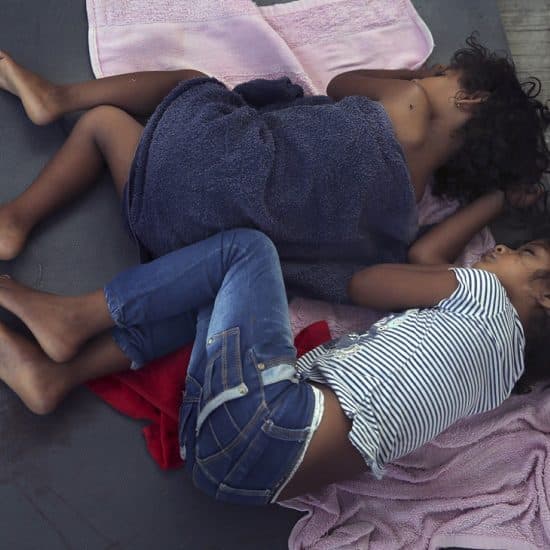Most of the world’s children (93 percent) live in areas where air pollution levels exceed air quality guidelines, according to a World Health Organization (WHO) report published Oct. 29.
“Air pollution is a major environmental health threat. Exposure to fine particles in both the ambient environment and in the household causes about seven million premature deaths each year,” the report stated. “Ambient air pollution (AAP) alone imposes enormous costs on the global economy, amounting to more than … $5 trillion in total welfare losses in 2013.”
WHO guidelines on air quality are available here.
While higher levels of particulate matter in the air are unhealthy for everyone, they are especially detrimental to young children.
“More than one in every four deaths of children under 5 years is directly or indirectly related to environmental risks,” the report said. “Both AAP and household air pollution (HAP) contribute to respiratory tract infections that resulted in 543,000 deaths in children under 5 years in 2016.”
AAP results from both human causation, such as burning fossil fuels and waste, as well as natural processes, including wildfires and volcanic eruptions.
Lower- to middle-income nations tend to see more negative impacts from air pollution, with higher-levels on average of household air pollution “due to the widespread use of polluting fuels and technologies for basic daily needs, such as cooking, heating and lighting.”
An estimated 98 percent of children under 5 in these lower- to middle-income nations are exposed to levels of air pollution greater than WHO air quality guidelines.
Because many of the pollutants causing negative health impacts also contribute to climate change and global warming, working to curb their use has a dual positive effect on both public health and the environment.
“We must seize this opportunity to create healthy, sustainable environments for our children. Everyone has a role to play, at every level,” the report said. “Children are society’s future. But they are also its most vulnerable members.”
The full report is available here.
This article originally appeared on EthicsDaily.com.






